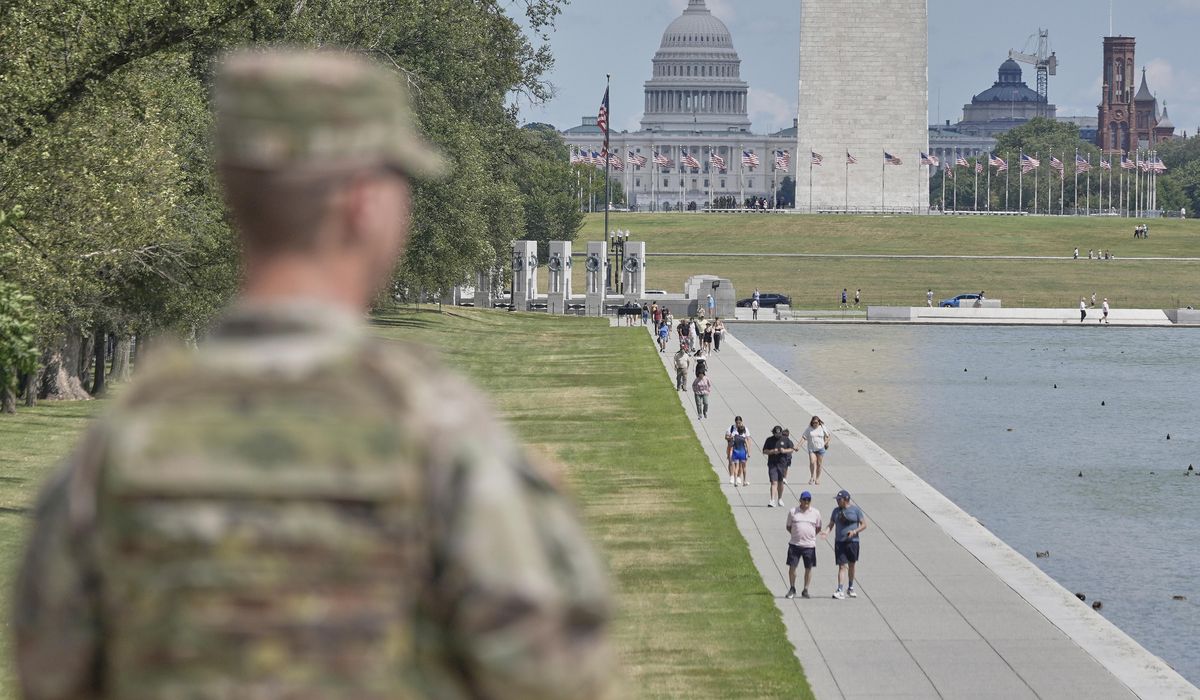


Several D.C. Council members have bashed the ongoing federal surge in the city initiated by President Trump, seemingly in response to Mayor Muriel Bowser praising the takeover for helping drive down major crimes.
Council member Zachary Parker, Ward 5 Democrat, came out first to criticize the law enforcement operations after Ms. Bowser highlighted data showing considerable declines in killings, carjackings and muggings since federal authorities and National Guard troops began patrolling the District.
“We, as city leaders, should be unequivocal that the federal surge of officers in DC and deployment of National Guardsmen on our streets are dangerous, unnecessary, and an affront to Home Rule,” Mr. Parker posted Wednesday on X. “We ought to be real clear about that. Real clear.”
Mr. Parker’s sentiment was soon echoed by council member Brianne Nadeau, the Ward 1 Democrat who is one of the more progressive members of the legislative body.
“DC is under siege by our own fed govt, w/ armed military patrolling our streets & masked agents scooping up neighbors & taking them away,” Ms. Nadeau posted on X. “Our residents are afraid, hesitant to go out & to work, angry that our limited autonomy is being eroded. There is nothing welcome about this.”
Early Wednesday, an apartment complex in Ms. Nadeau’s ward saw a police raid that drew a fiery reaction from neighbors.
Mount Pleasant residents yelled “Shame on you” at police officers, some of whom had their faces covered and wore street clothes, as authorities said they took a man wanted on gun and drug charges into custody.
The operation, which was just blocks away from Bancroft Elementary School and its heavy Latino population, stoked fears about immigration-related arrests taking place in the city.
But Ms. Bowser, a Democrat who has spoken out against the president’s rationale for federalizing the Metropolitan Police Department and sending roughly 2,000 National Guard troops into the District, has also celebrated how Mr. Trump’s surge has helped the D.C. police force amid its 50-year low in officers.
“We greatly appreciate the surge of officers that enhance what MPD has been able to do in this city,” the mayor said Wednesday at a briefing. “We know that when carjackings go down, when use-of-gun goes down, when homicide or robbery go down, neighborhoods feel safer and are safe. So this surge has been important to us for that reason.”
A fact sheet distributed by the mayor’s office showed a 45% decrease in all types of violent crimes from Aug. 7 through Aug. 24 when compared year-over-year.
Homicides fell 38%, sexual assaults fell 44%, weapons assaults declined 6%, robberies fell 62% and carjackings fell a whopping 87% in the given data range. Nonviolent crime such as burglaries and car thefts also dropped by 47% and 35%, respectively.
Still, the results of Mr. Trump’s crime emergency that started in earnest Aug. 11 are not sitting well with council member Charles Allen.
“It’s a moral moment for DC,” the Ward 6 Democrat posted on X. “Washingtonians are being taken off the streets & charged with crimes that even grand juries won’t indict, residents are scared to leave home & workers scared to go to their jobs. All while they drag our city through the mud. This is wrong. Call it out.”
Ms. Bowser and the D.C. Council have pushed back on Mr. Trump’s arguments for the troop deployment and spike in federal patrols by saying the city is witnessing a 30-year low in violent crime.
But the president has called those numbers phony, and repeatedly mentions that an MPD commander is under investigation for allegedly fudging crime data to make the District appear less dangerous.
The Justice Department has launched its own investigation into the District’s crime data, as has the Republican-controlled House Oversight Committee.
Mr. Trump’s 30-day crime emergency passed the halfway point earlier this week. The president is eyeing an extension of his temporary powers, but that seems unlikely because Democrats in Congress would need to support the move.
• This article is based in part on wire service reports.
• Matt Delaney can be reached at mdelaney@washingtontimes.com.
